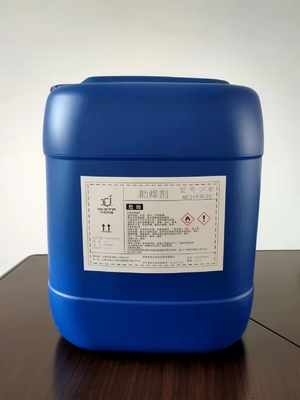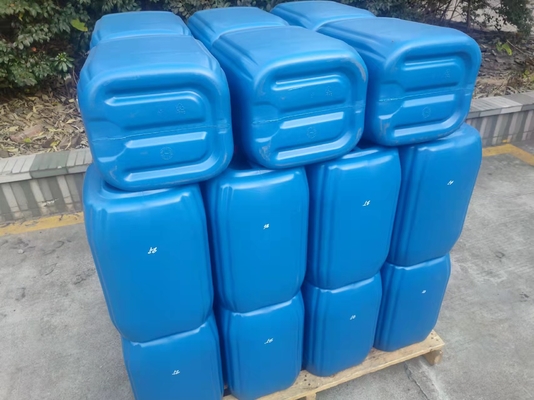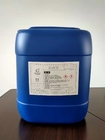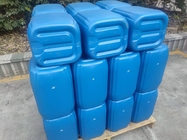4.5 Solid Light Yellow Transparent No Clean Rosin Flux Liquid Solder For Circuit Boards
| Appearance Color | Light Yellow And Transparent | Solid Content (WT/WT)% | 5±1 |
|---|---|---|---|
| Specific Gravity@20℃ | 0.803±0.008 | Cl-content (WT/WT)% | 0 |
| Closed Flash Point | 14℃ | Insulation Resistance (85℃/85%RH) | >1×108Ω |
| Water-soluble Resistivity | 36000Ω·cm | Silver Chromate Paper Test | Passed |
| Highlight | 4.5 solid no clean rosin flux,transparent no clean rosin flux,liquid solder for circuit boards ISO9001 |
||
No-cleaning flux Light yellow transparent liquid Rosin type flux
1. Introduction
◆ NS319T3 no-clean flux is a no-clean flux with medium solid content (4.5% solid content), halogen-free and high activity. It can be used in foaming, spraying and other forms.
◆ The resin active system has excellent wettability on the surface of bare copper and solder layer.
◆ The welding of multi-layer boards with metallized small holes will show excellent penetration performance.
◆ The residue on the PCB surface after soldering is extremely small, and the solder joints are uniform and bright and full and can be tested without cleaning.
2. Features and advantages
◆ Halogen-free, high activity, medium solid content, no cleaning required, saving operating costs.
◆ Some special activators added in NS319T3 flux are used to reduce the surface tension between the solder mask and the solder, which greatly reduces the production of solder balls.
◆ The thermally stable activator in the medium solid content no-clean flux reduces the incidence of continuous welding defects in wave soldering and selective soldering.
◆ There are very few residues, no corrosive residues, no stickiness on the board surface after cooling, suitable for needle testing.
3. Instructions for use
◆ In order to meet the requirements of stable welding performance and electrical performance reliability, the process establishment related to circuit boards and components must meet the requirements of weldability and ion clarity. It is recommended that the assembler put forward relevant regulations for the supplier of related materials, and require the incoming material analysis certificate or the assembler to carry out incoming material inspection.
◆ When assembling, handle the circuit board carefully. Only hold the edge of the circuit board. It is recommended to use clean, lint-free gloves.
◆ Use FD5050 thinner to clean the conveyor belt, chain teeth and clamps regularly to avoid the increase of residues on the edge of the circuit board after assembly.
◆ When changing the type of flux, use FD5050 thinner to thoroughly clean the flux container, flux tank, flux spray system, etc.
◆ The density and uniformity of the flux coating are critical to the successful application of no-clean flux. It is recommended to use a flux coating with a density of 500 to 1500 micrograms per square inch.
◆ Preheating makes the flux on the circuit board dry, enhancing the removal of oxides and the formation of good solder joints. The preheating temperature depends on various factors, such as conveyor speed, types of devices and substrates.
◆ When using foam coating, use compressed air with degreasing and dewatering to foam, so that enough flux is maintained on the foam core. Use a pressure regulator to adjust the air pressure to produce uniform bubbles and optimal height.
◆ The flux applicator needs to add a thinner to compensate for the loss of evaporation and maintain the balance of the flux composition.
◆ Debris and contaminants will accumulate in the flux coating of the loop. For the consistency of the soldering operation, the flux that is no longer used should be disposed of on a regular basis. After emptying the flux, use the thinner to clean the container and other tasks, and then fill the container with fresh flux. The flux should be given a few minutes to stabilize before the soldering can be resumed.
4. Health and safety
◆ The work area should be equipped with a suitable exhaust device to remove the flux. A large amount of inhalation of flux solvents and active agent volatile substances that volatilize at soldering temperature can cause headaches, dizziness and nausea.
◆ The outlet of the wave soldering equipment must be equipped with an exhaust device to completely remove the volatiles.
◆ Pay attention to protection during use to avoid prolonged skin contact and direct eye contact with flux. If it touches the eyes, please rinse with plenty of clean water and seek medical attention as soon as possible.
◆ NS319T3 flux contains flammable solvents (flash point is 14 degrees Celsius), and should not be exposed to fire sources or electronic equipment without fire prevention measures.
5. Technical parameters
| Parameter | Typical Value |
| Appearance color | light yellow and transparent |
| Solid content (WT/WT)% | 5±1 |
| Specific gravity@20℃ | 0.803±0.008 |
| Cl-content (WT/WT)% | 0 |
| Closed flash point | 14℃ |
| Insulation resistance (85℃/85%RH) | >1×108Ω |
| Water-soluble resistivity | 36000Ω·cm |
| Silver chromate paper test | passed |
| Suggested thinner |
FD5050 thinner
|
| Storage time | 12 months |
6.Rosin type flux picture
![]()







